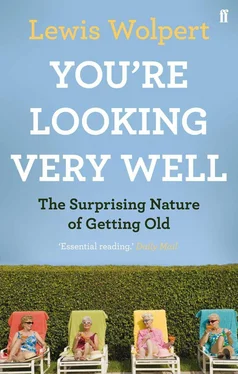‘Old soccer players never die, they just achieve their final goal.’ Roger Milla was 42 years old when he played in the 1994 World Cup for the Cameroon national team. He achieved international stardom at 38 years old, an age at which most footballers have retired, by scoring four goals at the 1990 World Cup. Many football players are in their prime in their 30s.
Snooker requires both mental and physical skills. Ray Reardon, who claimed six world snooker titles, reached the 1982 world final at the age of 49, only to lose to an inspired Alex Higgins. One of his greatest moments came in 1988 when, aged 56, he thrashed Steve Davis, winner of five world crowns. Golfers too can continue through the years. Tom Watson at 59 only just lost the 2009 British Open, and there was a great deal of positive news coverage that someone of his age could be so successful. One old golfer was still driving himself to the course at 101, and only recently moved into assisted-care living at Arizona Grand. At 100, he could still break 40 for nine holes, and he didn’t start riding in a cart until a hip problem caught up with him at 98.
Declining health and capability that accompanies age may be made worse by prolonged exposure to an unhealthy environment and lifestyle. Older people rather consistently rate their health as good, despite evidence suggesting that they are more likely to suffer from a variety of health problems. Many older people take a holistic view of what ‘health’ means, including wellbeing and social factors, and in general take a positive view. Older people who accept negative images of ageing are more likely to suffer with health problems—they are also, because of their negative attitude to ageing, more likely to attribute their problems to the ageing process, and therefore do not seek the necessary medical assistance. Some older people may also minimise their health problems as a deliberate method of denying negative age-related stereotypes. In addition, some older people are reluctant to visit medical professionals because they feel, unwisely, more comfortable trusting their own common sense.
Heart-felt perils await people who hold disapproving attitudes about the elderly, a new study suggests. Young and middle-aged adults who endorse negative stereotypes about older people display high rates of strokes, heart attacks and other serious heart problems later in life, compared with ageing peers who view the elderly in generally positive ways. Yale University psychologist Becca Levy found that those who viewed ageing as a positive experience lived an average of seven years longer. This means that a positive image had a greater impact than not smoking or maintaining a healthy weight. Levy says that patronising attitudes and ‘elderspeak’—speaking to elders as if they were children—can affect their competence and lifespan. There are claims that optimism and coping styles are more important to successful ageing than physical health. But do keep doing exercise. Also note that there is a little evidence that being bored can result in heart problems and an earlier death.
We will look later at the possible cellular basis of the changes in our bodies as we age, but now turn to mental changes and illnesses associated with ageing.
‘First you forget names, then you forget faces, then you forget to pull your zipper up, then you forget to pull your zipper down’
— Leo Rosenberg
Almost all of us who are ageing must admit that our minds deteriorate in some ways as we age. Memory is the most obvious example: it is all too common for simple things, particularly names, to be forgotten, and then often they come back unexpectedly a little while later. In fact speed of thought and spatial visualisation begin to decline in our twenties and our mental abilities peak at about 22 years old, before beginning to deteriorate just five years later. Memory has been shown to decline from an average age of around 40. But abilities based on accumulated knowledge, as shown in performance on tests of vocabulary or general information, increase until the age of 60. George Burns pointed out: ‘By the time you’re eighty years old you’ve learned everything. You only have to remember it.’ And though our mental processes do become less efficient, we can become more efficient in solving complex moral and social problems.
The Ancient Greek dramatist Sophocles was hardly positive about old age: ‘When a man is old the light of his reason goes out, action becomes useless and he has unmeaning cares.’ His sons appeared to agree: because of his absorption in literary work, Sophocles was thought to be neglecting his business affairs, and his sons hauled him into court in order to secure a verdict removing him from the control of his property on the ground of imbecility. Then the old man read to the jury his play Oedipus at Colonus , which he had written at the age of over 80, and inquired: ‘Does that poem seem to you to be the work of an imbecile?’ When he had finished, he was acquitted by the verdict of the jury.
The Roman orator Cicero wrote: ‘Old men retain their mental faculties, provided their interest and application continue; and this is true, not only of men in exalted public station, but likewise of those in the quiet of private life.’ It is impressive to see how similar his views about how to age best are to current ones—keep mentally and physically active. To the objection that memory begins to fail in old age, he replies: ‘No doubt it does, if you don’t keep it in trim, or if you happen to have been born a trifle dull. I have never heard of any old man forgetting where he had buried his treasure: the old remember what is of real concern to them: their days in court, their debts, and their debtors.’
Those reaching 70 with some 14 years ahead will, on average, spend nearly two years in moderate or severe cognitive impairment. There is thus great concern, even fear, about the increase in dementia with age, especially Alzheimer’s disease. The Disconnected Mind team is conducting an extensive analysis on the contribution of lifelong demographic factors to the rate of brain ageing. Brain function at age 11 is the biggest indicator of brain function in later life; clever children make clever and mentally competent old adults.
There is not a significant loss of nerve cells with age, though several populations of nerve cells are lost in the old. As people age, peripheral nerves may conduct impulses more slowly, resulting in decreased sensation, slower reflexes, and often some clumsiness. Nerve conduction slows because myelin sheaths, the layers of cells around nerves that speed conduction of impulses, degenerate. Shrinkage of the brain is due to fluid loss as well as reduced branching of extensions from nerves. There is also a reduction in the size of the cell bodies and the accumulation of granular pigment and filament tangles and abnormal small structures. In about one third of old brains, there are abnormal deposits of amyloid, which are proteins that form insoluble fibrous protein aggregates and are common in the brains of those with Alzheimer’s disease, and this leads to damage of nerve cells. Late onset schizophrenia is rare.
Studies have revealed that separate brain regions that are involved in higher-order cognitive functions show less-coordinated activation with ageing. This reduced coordination of brain activity is associated with poor performance in several cognitive domains. Although neuronal loss is minimal in most regions of the normal ageing brain, changes in the connections between ageing neurons may contribute to altered brain function. More than 150 genes have been found to undergo age-dependent expression changes in the brain; some of these are more active with age in mice but less so with age in humans. The function of these genes and how they are turned on and off is not yet understood. Studies on mice have identified memory disturbances in the ageing brain as being due to certain genes associated with memory being turned off. There are also lower concentrations of neurotransmitters like dopamine, which has important roles in behaviour, cognition and voluntary movement. In the human brain, declining mitochondrial function may selectively affect neuronal populations with large energy demands, such as the neurons that degenerate in Alzheimer’s disease.
Читать дальше












